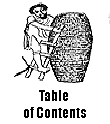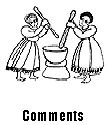
|
They had arrived hot and sweaty from the long bumpy ride to Lalibela. The pale peach of the rocks against their unforgiving angles had caught him off-guard, as though the secret smile of the sun had warmed their center and in its exuberance, had snuck and spread on the surfaces. The university professor with deadlines to meet and theories to explore, felt suddenly dwarfed by the presence and permanence of imagination in stone, hushed by its incense anointed silence and low meditative murmurs. He cleared his throat and rather abruptly demanded to see Abba Gebre Mariam, his reliable contact whose insights would help him shape the indigenous Ethiopian view of the creation of the universe which he would then present at the upcoming conference to certain accolades. Abba Gebre Mariam soon appeared and inquired without pretense what the good university professor had studied that led him to this sacred place. The professor began, "yemejemeryawin degreeyen be qwanqwa Tinat CHerishE kezyam Ph. D-yEn be filsifina serichalehu …." Abba Gebre Mariam squinted against the sun, "isti belew, lijE." All this by way of summarizing our predicament with unscrupulous Seleda Editors offering the theme of Ethiopia and gleefully incanting "isti belut!"and "ijachehu kemin!" Fassil dearest, I come to you from a very scattered place of snap-shot images and sound bites that swell and recede to their own rhythms enjoying the madness of their own muddles. Thus forewarned, yekebere selamta, kewegebe qinTis (and I mean qinTis like minTile’s Tenadam in Ha Hu Besidist Wer) iyalku! I encountered Maritu the Marvelous not once but twice in the past two weeks — a friend sent the poem from Addis Abba right after I heard it read to me. (Won’t Santana be persuaded to do a sequel to "Maria Maria"?) May I say how light and loving your touch with language, how playful (and pungent) your imagery, and how replete with leza your invitation to Maritu’s private moments. May you live long and strong as the Gimbs in Gonder that guard the castles of your namesake, and may many more Maritu’s multiply. (Amen lezelalem.) I resume mid-thought with my latest preoccupation — the illusion of permanence presented by "tradition" juxtaposed to the unfinished state of things. Let me elaborate. Some friends and I recently went to a showing of Deepa Metha’s controversial film Fire, and had the pleasure of a question/answer session with the lead actress Shabana Azmi afterwards. Fire tackles several social issues head on, and alarms many in its story of sexual attraction between two women: one who’s husband practices the emptying of desire while laying beside her and controlling any physical or emotional response, and the other just recently plunged into an arranged marriage with a husband who is amorously occupied elsewhere, but is reluctantly going through the motions. As this compelling story unfolds, there is a third character (Biji, the grandmother)who is struck mute by a debilitating stroke and is tended to by these two dutiful women at the beck and call of her ringing bell. Ethereal in her translucent white sari and talcummed presence, Biji is privy to the activities of this sexually repressed household and visibly repulsed with the carryings-on. Despite the noisy, largely male displeasure at the assertion of independence by the two women, Biji’s condemnation has the heavy-handed finality of the last word by "tradition" that, as the metaphor extends, even in its crippled state eventually (literally) spit in the face of Shabana Azmi’s character. At the end of the film, many older Indians expressed their diplomatic dismay which the actress respectfully accepted. I braved the question of how the one voice that would have changed the dynamic between the three women (tipping it to "tradition") was mute, to which Shabana responded that tradition was omnipresent and needed no one voice to represent its demands. An Indian friend next to me wryly murmured, "Tradition need only ring the bell … everyone responds!" The question that keeps resurfacing in me is how things considered of "tradition" are, like religious experiences, in an unquestionable realm, in a seemingly uncompromising state of stern finality that affords shelter to many and a choke-hold on others. My recent school pursuits led me to Wello where I hung out with Nigus Mikael and followed the scenic route to power by Lij Iyasu, all to the soundtrack of Mary Armday’s singing. Talk about the state of in-between! For a while there, Lij Iyasu kept one step ahead of those breathing fire on his heels, sending them in a tizzy with his controversial efforts to bring about social redress and political equality. Signs of life and motion as he whizzed about the country looking for new wives to marry, and unconventional alliances to cultivate … until the light of the unimaginable slowly flickered its last in a lonely amba. Mary’s ache for the unfinished was the perfect sound track. Mary with her scratchy sandpaper yemyankeratit ashewa lashewa love … blind wanderings …shattered stories strumming her own solitude … Something about uncharted courses and their drunken weavings stays true to life and creativity. Where and when "tradition" in its silencing might is summoned, even the most straight forward of tasks is unseemly, suspicious in its very spontaneity. I paint you another picture of an actual occurrence. In December of 1959, the Crown Prince of Ethiopia and his entourage were visiting San Quentin prison when the unthinkable happened. The Crown Prince’s shoe became untied. The accompanying author, well-armed with his observations of décor and protocol, was immediately captivated with probable outcomes: How would this problem be solved? Would the Prince stop and tie it himself? Would he ask someone in the party to tie it for him? If so, when? Nothing happened and the tour resumed. The lace became looser and looser until the shoe began sliding up and down with every step. Still, nothing happened. As the author laments, "Toward the end of the tour, the Prince was limping slightly no doubt because of a blister … The shoe was never tied …" Something about the untied offers possibilities, with ample room and reference. The poet Pablo Neruda uses the term unfastened … as though casting a wide net into the night sky. I’d like to believe that "tradition" is neither still or static, has room to play and renegotiate territories new and old. The untied shoe never gave a thought to being defiant. It just became undone at an inconvenient moment that, in the larger scheme of things, can also be embraced … no limping foot or ringing bell required. Don’t ask me what any of this has to do with the price of tea in China … but I’ll ramble myself off screen for now and await to hear from you … Heran
From: Fasil To: Heran Subject: Be GuramaylE QiNit … In a list of sundry email from friends near and far; a pile of spam offering me a 0% interest credit, supposedly because I turned out to be the most credit-worthy individual on the face of the earth ( "DinQem!" ale Mengistu Haile-Mariam), or as the saying goes, "Doro’n siataliluat, bekissing aTofuat"; and an appeal to me to take advantage of a recent breakthrough of a miraculous penis-enlargement gimmick with a photo, to tempt me, of a monstrous pink plantain dangling between hairy thighs ("Esti beseTeN Tirs emibelaw ayasaTaN" alu emahoy); and, of course, Seleda’s "let’s-stay-in-touch" spiel; I see your email, Heran, and I click it open to soak in yemoQe selamta, something in the vein of: "BalawQhim enkuan …." But what do I see instead? An unflinching heart-of-the-matter! And I say to myself: well, I guess I am up against a Ms. Qumneger who wouldn’t waste time on inconsequential Enka Selamta, and wiping the eager smirk off my face, sit reading the first paragraph line by line, betemesTo. And then, several lines down comes the part that restores my belief in the fact that I am not a nameless, faceless, e-chimerical entity; a mereEgele@Eziamado.comwho would mutely suck in what he is given, chew it up in his hole somewhere, anonymous in a sea of humanity, and spit out what he has made of it. And yene neger! After waxing weak of knees at the "Fassil dearest" and waiting for my heart to get its act together and get on with its ancient, immutable, imbecilic, two-beat rhythm, your praise of my giTim "Maritu" sweeps me off my feet and leaves me cross-eyed with a sudden surge of…what do you call it…self-adulation. Yep! I can’t take compliments with my eyes straight. And Heran, don’t think the "After I heard your poem READ to me…" part has escaped my notice, and on the first read at that. Read to me? Minew, minew jal? And of course I latched onto that piece of info with a look on my face of one who has lost a simuni and found a’nd birr. And here is one of the seemlier of fantasies, possibilities, what-if’s, my mind has concocted with the rapid fire squirt of a nanny goat "dropping currants"* from beneath its indecently upturned bit of a tail. Dros fiyel! Me — Yeneta — seated on a battered three-legged barCHuma wrapped up in a slightly soiled gabi adorned with a thick blood-red Tilet and my head imposingly wound with asra-arat zoor TimTam. Yeneta, of the flabby mound of a belly and the overflowing nebrima riz, one hand avidly yet discreetly scratching hidden crannies beneath the colossal gabi while the fingers on the other play with a length of the most durable whip money can buy (you don’t expect any less from a dried, lard-polished Qoorz that has sired several yemiamru gideroch, do you, now?) Yes, Yeneta Fasil in his desasa gojo waiting for Heran who slinks through the half-open door hugging a brand-new fidel pressed to her bosom, and with a bow and a smile, squats next to him. "Ha hu hi ha…" she parrots him, her sebez-gripping hand in his, a warty toad on top of a slender frog (ay siminteNaw shi, joro yemaysemaw yelem!) With that, her baby steps towards literacy in AmariNa… As the sun begins its descent behind the horizon and the late afternoon quiet of the village gives way to the cacophony of man and beast trudging homeward after a long day of toiling, foraging and dunging, the eerie twilight draping the hilltop where Yeneta has built his hut overlooking the church of St. Ghiorgis stirs up the spooky brainwaves of the myth-riddled priest. He takes it into his head to regale the doe-eyed korreda crouching next to him with tales of aganint, rkusan-menafist, and how twilight unfetters them to their favored time of rampage. "keQenu se’atat hulu endedingizgiz leganen yetemeche yelem. Sew betu sigeba, enesu medawun yiworrutal", he begins, stroking his beard with loving fingers, and goes on spinning his hair-raising yarn. The sweat on Heran’s palms stains the new fidel as her eyes roll in trepidation behind their lashes, roaming the dingy corners of Yeneta’s shack. Yeneta steals a furtive glance at the dembel throbbing on her deret in rhythm with the quaking of her heart, and he unleashes an avalanche of horror with renewed fervor. "Yeneta, ferahu!" she whimpers, snuggling closer. "Ene Eyalehu min yasferashal? Ma meselkush anchi? Enkuan tera ganen, saTna’el erasu bihonem yichin mesQel ayQerbatim!" he brags fishing out a wooden cross, encrusted with oily dirt. "Ney Tega beyina samiyat!" he orders her. As she thrusts her face forward to kiss it, the cross accidentally-on purpose, slips from his hand and …wah wah wah!…enjorri kenafir meet Yeneta’s yewoizero medaf. Four months later… Deprived of his shield against Ekuy menafist when the cross slipped out of his hand and dropped, head first, onto the dung-polished floor of his home, Yeneta had become a prey to one of the twilight demons of his tale that roamed the land in search of souls to tempt and possess, and his descent down the abyss of gehanem was begun with a kiss planted in the palm of his hand. Now, he is a fallen priest, they say, a disgraced ex-servant of God who has bartered eternity for a few years of earthly joy. But he is happy, by the look of things. Stripped of his menfesawinet together with his titanic gabi (which he has replaced with a hand-me-down blazer infested with various buttons gotten for a bargain at a faraway flea market), having parted with his massive TimTam and shorn the lush growth of beard that used to tickle his navel when he sat naked in his bed for an early dawn prayer, he has been transformed into a strapping hunk, sleek and shiny like a snake that has just sloughed off an old, worn out skin. He is living in sin, away from judging, prying eyes, shacked up with a gorebet lij he had seduced one evening four months ago. They are happy, shamelessly happy, they say, "giggling like a pair of fifteen year olds in love." Wuha siwosd eyasasaQe new. Having raved, ranted and foamed at the mouth, I must simmer down because I could almost hear the Seleda Shumamint grumbling "ehem…uh…esti sine sir’at!" Humbled by your wogeb QenTis selamta, I am standing hat in hand, and won’t sit down until I hear you say: "Ere ayigebbam! Bemariam, beGebriel teQemet ebakkih!" TenayistiliN, Heran. Thank you for the encouraging words, and I might churn out one more Maritu just for that. Now wedeQumnegeru. First thing, you may not believe it, but not until the fourth time reading your email did I realize that the movie title "Fire" was actually the English word for "Isat". Maybe because of the Italics, or perhaps despite my bilingual exterior, the words that whisper and gurgle in my veins are yamariNa Qalat with all their plosive-studded resplendence (ChiQa QuanQua TenQuai QaCHil netsebraQ ), I mistook "Fire" for the Amharic "fire" as in "firew", hee hee! And I was asking myself what Deepa Metha was thinking messing around with my language. On the theme of change and the resistance to changing some old detrimental practices carried on in the name of tradition, convention, culture, heritage and all that fine-sounding wind, of course I am for doing away with the ugly, as long as we know exactly what to replace them with. In other words, as long as the whole thing doesn’t end up being kediTu wodemaTu. But even now as I am writing these words, I feel the undercurrents of faint rebellion at my halfhearted advocacy for change. I hope you don’t judge me harshly for that, for after all I hail from Ethiopia, the land of ragged permanence, a country whose people have always looked for signs of their doom or bloom in the skies of June, July and August. And yet, our farming tools — ox-drawn mofer, Qenber, irf, wogel, etc, and all those yehiliwunachin awtaroch remain unchanged through thousands of years, despite a staggering 3% birthrate that has littered every nook and cranny of Abyssinia with yesew me’at. Change? Sialfim aynekan! Hence, the enduring, quintessentially Ethiopian aphorisms: "yalageru!" "yalabatu!" "yalewogu!", meaning, innovation = doing things yalewogu. Therefore, it should be condemned, laughed at, avoided like the plague, frowned up on, spat at, ground to dust! Having said that, some sense of permanence in this ever-changing world, a rock of stability in this time-driven chariot of change cruising headlong to God knows what end, wouldn’t hurt. Even if that could mean Woizero GeTenesh would keep addressing her hubby of thirty years, Balambaras Birru, by the deferential pronoun "Irsiwo", and that she would get through that rare virile spell of his without a peep, because she had once let herself be carried away and squealed like a delirious puppy. Vexed and incredulous, Balambaras had halted his exertion and waited to let her know that she was making a fool of herself. Still in the fuddling fog of Eros, she had asked panting: "Minew Balambiwa, CHeresu ende?" "BiCHeris balCHeris min tiliQ aregesh? Demo kemeche wodih new Balambiwa yehonkut? Wochew guuuud!" he had grumbled and resumed the rough and tumble, now to the creak and groan, not of his shame-shrunken wife, but of the sprawling yeshibo alga. Yeah, there might be some truth to the saying that "KemayawQut mel’ak…" Maybe just a shred of truth. What do you think? Do I sound like a thick-hided conservative knucklehead? I am just indulging myself in bualt. By the way, "the indigenous Ethiopian view of the creation of the universe" is truly worth looking into. Bemakber, Fasil |

|

|

|

|

|
| © Copyright SELEDA Ethiopia, April 2002. All Rights Reserved. |
